Intro
Ouch! Popping a blister can be a painful and frustrating experience, especially if you're in the middle of an activity or have a big event coming up. But don't worry, we've got you covered. In this article, we'll walk you through what to do next if you've popped a blister, how to promote healing, and provide some tips on how to prevent them from happening in the first place.
Understanding Blisters
Before we dive into what to do after popping a blister, let's quickly understand what causes them. Blisters are fluid-filled bubbles that form on the skin as a result of friction, burns, or other types of skin irritation. They can occur anywhere on the body, but are most common on the feet, hands, and face. When a blister forms, it's essentially a natural protective barrier that helps to cushion the skin and promote healing.
What to Do After Popping a Blister
If you've popped a blister, it's essential to take proper care of the affected area to promote healing and prevent infection. Here are the steps to follow:
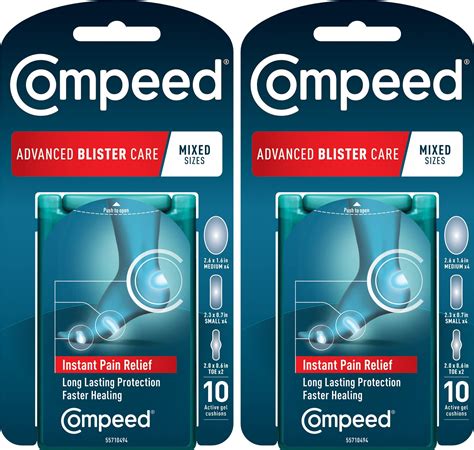
- Clean the Area: Wash the affected area with mild soap and warm water to remove any bacteria or debris. Pat the area dry with a clean towel.
- Apply Antibiotic Ointment: Apply a thin layer of antibiotic ointment to the affected area to help prevent infection.
- Cover the Blister: Cover the blister with a bandage or dressing to protect it from further irritation and bacteria.
- Change the Dressing: Change the dressing daily or whenever it gets wet or dirty.
- Monitor for Infection: Keep an eye on the blister for signs of infection, such as redness, swelling, increased pain, or pus. If you notice any of these symptoms, seek medical attention.
Promoting Healing
In addition to taking proper care of the affected area, there are several things you can do to promote healing:
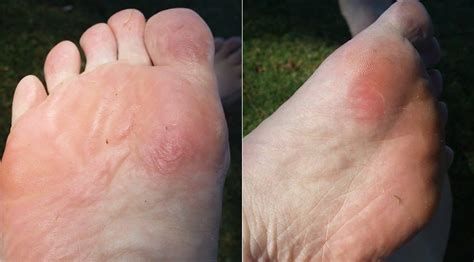
- Keep the Area Moist: Apply a moisturizer to the affected area to keep it moist and promote healing.
- Avoid Further Irritation: Avoid activities that may have caused the blister in the first place, such as wearing tight shoes or engaging in repetitive activities.
- Take Pain Relief: If the blister is painful, take over-the-counter pain relief medication, such as acetaminophen or ibuprofen.
Preventing Blisters
While it's not always possible to prevent blisters, there are several things you can do to reduce your risk:
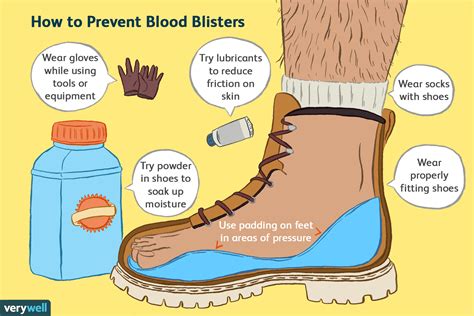
- Wear Proper Fitting Shoes: Wear shoes that fit properly and don't put pressure on specific areas of your feet.
- Wear Socks: Wear socks to reduce friction between your skin and shoes.
- Use Blister Prevention Products: Use blister prevention products, such as blister shields or blister pads, to reduce friction and prevent blisters.
Common Causes of Blisters
Blisters can be caused by a variety of factors, including:
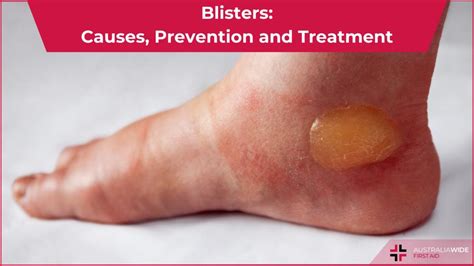
- Friction: Friction is the most common cause of blisters. It can occur from wearing tight shoes, engaging in repetitive activities, or rubbing against rough surfaces.
- Burns: Burns can cause blisters, especially if they are severe.
- Skin Irritation: Skin irritation, such as eczema or dermatitis, can cause blisters.
- Infections: Infections, such as herpes or chickenpox, can cause blisters.
When to Seek Medical Attention
While most blisters will heal on their own with proper care, there are some instances where you should seek medical attention:
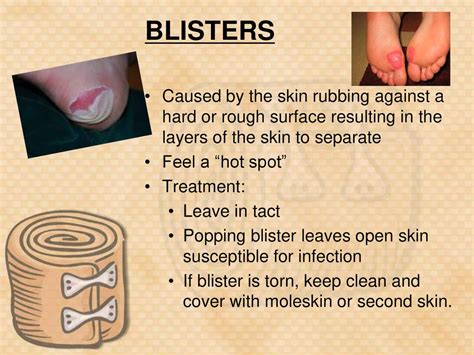
- Signs of Infection: If you notice signs of infection, such as redness, swelling, increased pain, or pus, seek medical attention.
- Severe Blisters: If you have a severe blister that is large or painful, seek medical attention.
- Blisters that Don't Heal: If you have a blister that doesn't heal with proper care, seek medical attention.
Conclusion
Popping a blister can be a painful and frustrating experience, but with proper care and attention, you can promote healing and prevent infection. By following the steps outlined in this article, you can take care of your blister and get back to your normal activities. Remember to take steps to prevent blisters from happening in the first place, such as wearing proper fitting shoes and using blister prevention products.
What should I do if I pop a blister?
+If you pop a blister, wash the area with mild soap and warm water, apply antibiotic ointment, and cover the blister with a bandage or dressing.
How can I promote healing?
+To promote healing, keep the area moist, avoid further irritation, and take pain relief medication if necessary.
What are some common causes of blisters?
+Blisters can be caused by friction, burns, skin irritation, and infections.
